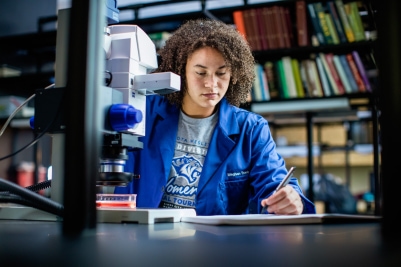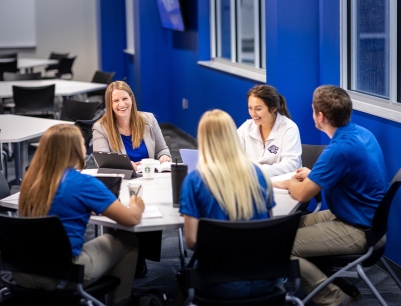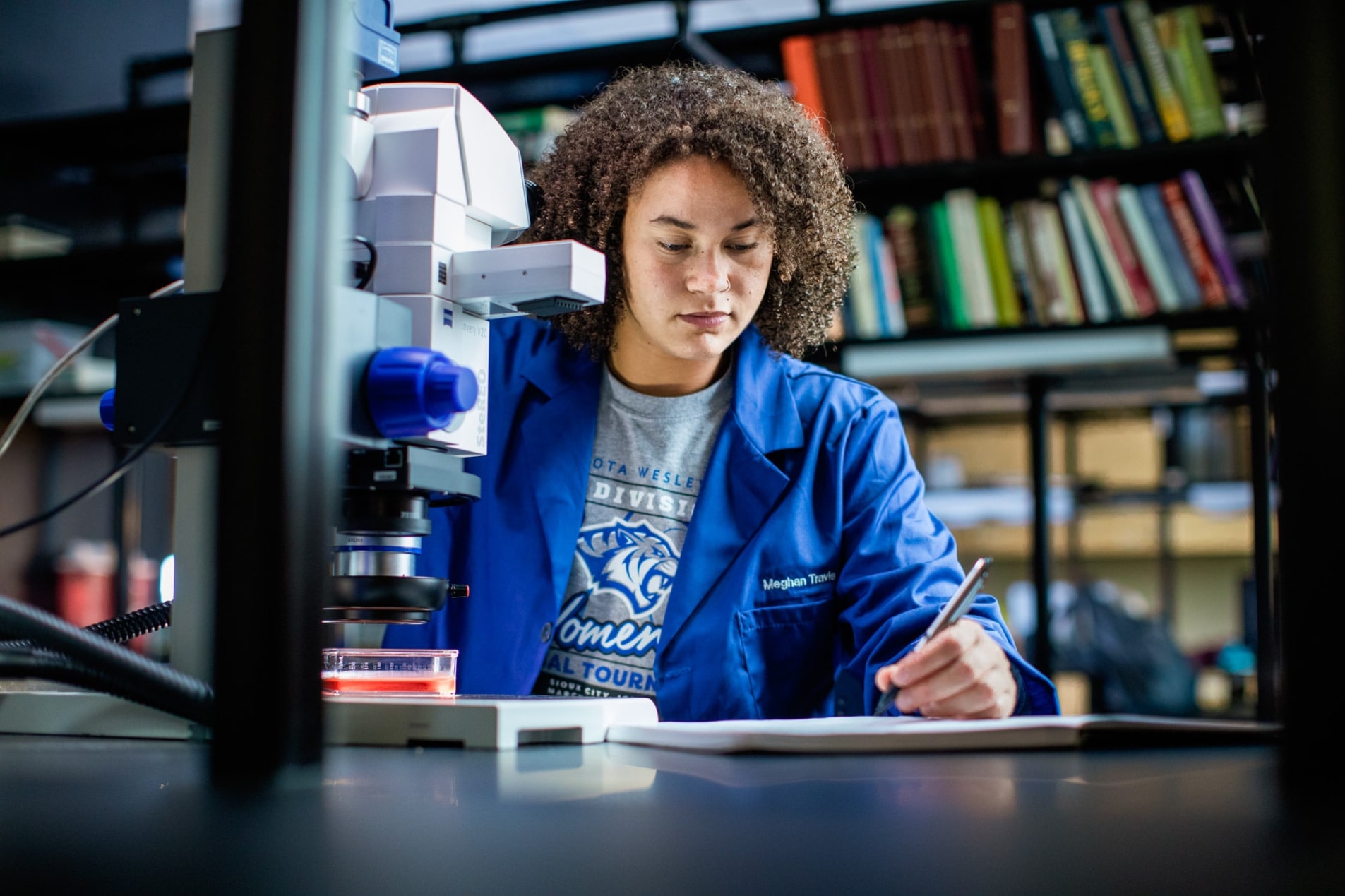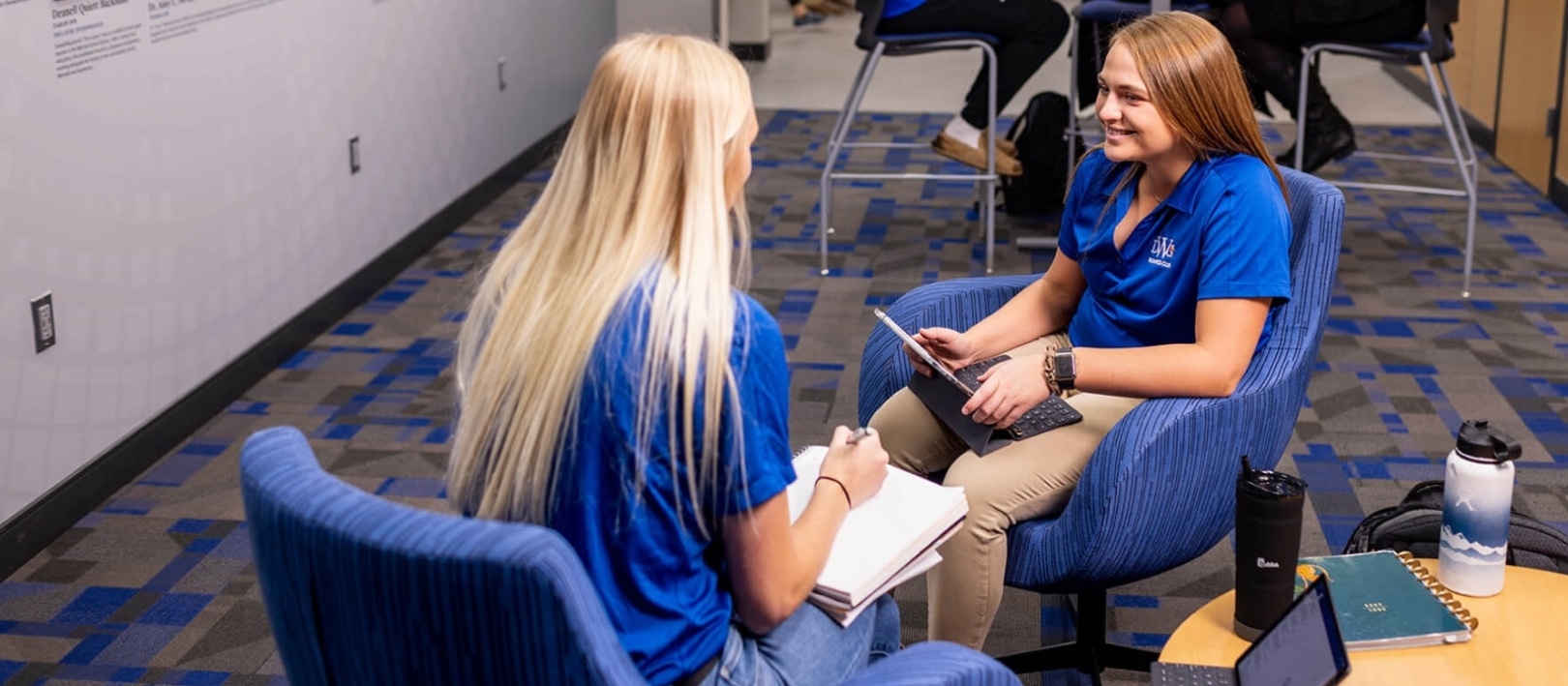Chemistry
Explore the Molecular Sciences
What jobs can you do with a
chemistry degree?
A degree in chemistry will prepare you for a variety of professional career paths, such as:
Medicine and Health-Related Industries
Research in Forensics and Government Entities
Chemical Engineering and Manufacturing
Drug and Food Testing
Chemistry Teaching and Instruction
Explore many more career opportunities:
What’s the Difference at DWU?
• With a low student-to-faculty ratio, you’ll receive personal attention that will strengthen and develop your understanding of chemistry.
• Unique opportunities for independent research and internships will be available to you, including opportunities on and off campus.
Chemistry Courses
You’ll study elements of the world, the composition and behavior of matter and how it undergoes chemical change. Plus, you have an opportunity to present your research at DWU’s Capstone Day.
BIO 120 Principles of Biology I
Prerequisite or corequisite: BIO 120L
BIO 120L Principles of Biology I Lab
Corequisite: BIO 120
CHM 231 Organic Chemistry I
Prerequisite: CHM 164/166
Corequisite: CHM 231L
CHM 231L Organic Chemistry I Lab
Prerequisite or corequisite: CHM 231
CHM 310 Inorganic Chemistry
Prerequisite: CHM 164
CHM 332 Organic Chemistry II
Prerequisite: CHM 231/231L
Corequisite: CHM 332L
CHM 341 Biochemistry I
Prerequisite: CHM 174/174L or CHM 231/231L
Corequisite: CHM 341L
CHM 360 Physical Chemistry
Prerequisites: CHM 164 and MTH 210
CHM 403 Research in Chemistry
Prerequisite: Consent of instructor.
MTH 210 Calculus I
Prerequisite: MTH 135 or math placement.
MTH 225 Advanced Calculus for Scientists
PHS 260 University Physics I
Prerequisite: MTH 210
Corequisite: PHS 260L
PHS 260L University Physics I Lab
Prerequisite or corequisite: PHS 260
PHS 270 University Physics II
Prerequisite or corequisite: PHS 260/206L
Corequisite: PHS270L
PHS 270L University Physics II Lab
Prerequisite or corequisite: PHS 270
Get to Know Your Professors
Learn chemistry from our experienced professors! Our low student-to-teacher ratio offers valuable
one-on-one interaction.
Bethany Melroe Lehrman, Ph.D.
Paula Mazzer, Ph.D.
The Experience
Through the Dakota Wesleyan department of chemistry and physical sciences,
five branches of chemistry are available to you.
Chemistry is available as a major or minor. You’ll have opportunities to diversify
your academic career with electives in biology, chemistry and math.
Related Majors & Minors
Biochemistry
Explore the world around you! Learn from science professionals in state-of-the-art facilities and in the field.
Biology
Interested in plants, animals and human life? Explore living things with a major in biology.
Biology Education
Open young minds to the wonders of science! Become a biology teacher.
Pre-Medicine and Related Health Professions
Do you have a passion for healing? Our faculty are committed to your success in the health arts.














